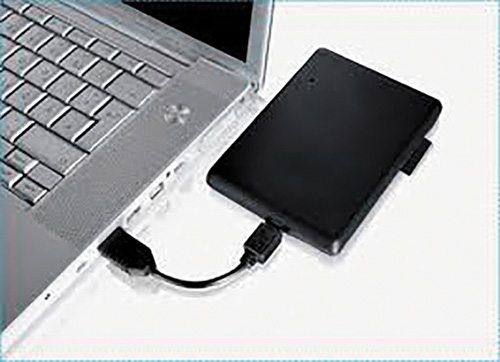
A call I dread, but unfortunately have gotten too many times, starts off with, “my computer crashed, did I lose everything?” To which I have to ask, “When was the last time you backed up your data?” Too often the answer to that question is: “Never.”
I cannot stress strongly enough that there are never enough times somebody can back up their data. I recommend backing up your system once a week, but if that just isn’t something you’ll remember, remind yourself on Rosh Chodesh to run your backups.
Computers and their components can all be replaced or repaired, but data is the lifeline of your home office or business. Pictures that you hold dear could simply be lost to the electronic void. Missing files may cripple your financial files, taxes, or even your day-to-day business needs.
There are too many heartbreaking stories to fit in one column of instances my job has gone from trying to fix a computer, to consoling a client in tears. In a recent case, the client had years of family events stored in files and chose to send them out to a lab for recovery. The lab, too, had no success in recovering the files.
These disaster recovery labs can cost in to the thousands of dollars for their work, and they give no guarantee that their methods will be 100% effective.
The only way that I can promise my clients that their data will be safe is if they use methods of backup redundancy: That is, back up as many times and in as many separate places as possible.
First off, for under $100 one can purchase an external hard drive that is one terabyte or larger. This should be more than enough space to save all of your coveted information. Usually the external drive comes with a program that can be used to help you schedule and choose which files to back up. I recommend backing up all documents and pictures right off the bat.
Note that copying the entire drive will not be effective. Programs are not transferable and there are some full imaging programs that will do this, but can be difficult for the average user to manage. Consult your IT professional if this is something that you deem necessary.
Online cloud backup is another option and an effective solution. The cost will be higher but most of the choices are “set it and forget it.” The two that I recommend the most for personal use are MozyHome (www.mozy.com) and Carbonite (www.carbonite.com). The prices for these two programs vary depending on what you choose to back up, but the risk of losing your data outweighs the cost.
MozyHome has military-grade security and is HIPAA compliant. The data itself is encrypted with 256-bit AES or a Mozy-managed 448-bit Blowfish encryption key and then transferred to a Mozy data center via a secure SSL connection.
Carbonite has unlimited data backup for home use and the data can be accessed from anywhere. Restoring the data may take a while, so be prepared for this. For business, MozyPro has the same functionality as MozyHome, although it allows you to back up multiple computers on one account, and also sends a nightly report identifying a successful or failed backup. A great feature is that MozyPro will back up your data locally to an external drive as well as on the MozyPro server simultaneously. In the case of an outage, the data can be recovered from the external drive. The external drive should be checked often to ensure that it is working and is not full.
There are several other options along these lines for backups, each will benefit specific users differently.
In the coming issues we will discuss online document storage. Please note, however, that Dropbox, Google Drive, and Box are not backup programs! For a fee, you may be able to recover some folders from these services at a later time, but these are online storage options only, not backup solutions.
When in doubt, backup, backup, and then backup.
Shneur Garb is the founder and CEO of the Garb IT consulting group based in Teaneck. To have your computer and network questions addressed in this column, please email Shneur@garbcg.com.
by Shneur Garb









